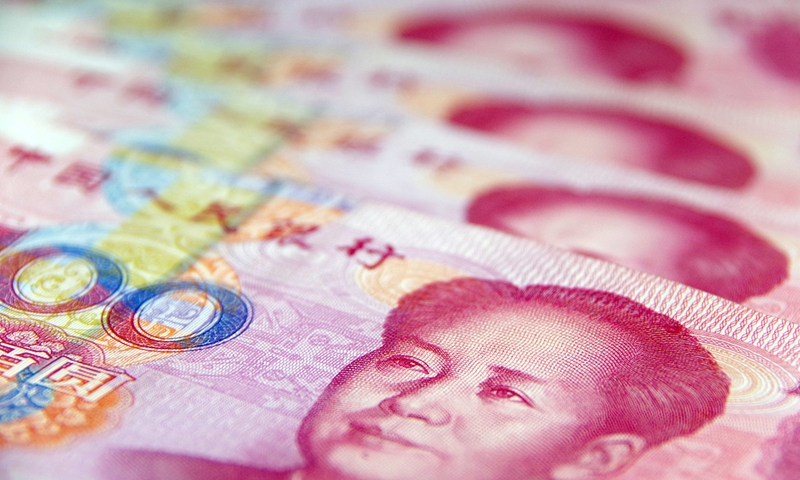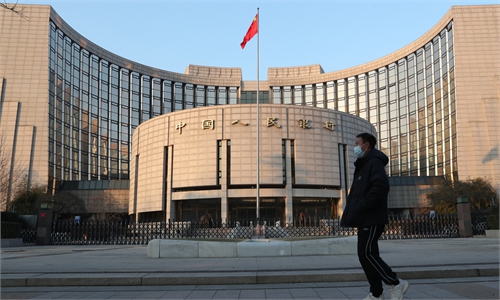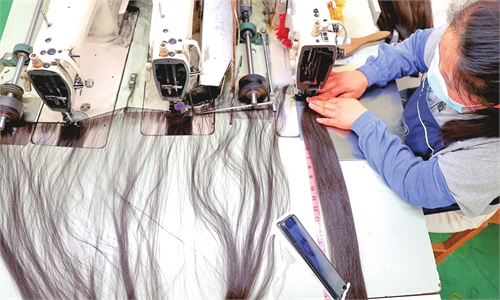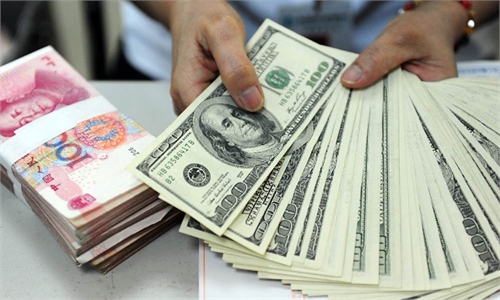
RMB Photo:VCG
China's central bank on Friday lowered the five-year loan prime rate (LPR) by 15 basis points to 4.45 percent in May, its biggest cut in the mortgages-referenced benchmark for longer-term lending. This comes as the government vows to fast-track pro-growth policies amid a slowing economy.
The People's Bank of China (PBC), the country's central bank, held the one-year LPR steady at 3.7 percent in May, while lowering the five-year LPR from the previous month's 4.6 percent.
The LPR, based on a weighted average of lending rates from 18 designated commercial banks, is announced on the 20th of each month.
Friday's decision was the second cut in the five-year LPR this year, also the largest and first asymmetrical reduction in the longer-term lending rate.
The previous changes were in January, when the PBC cut the one-year LPR by 10 bps from 3.8 percent. Meanwhile, the five-year LPR was lowered by 5 bps from 4.65 percent, the first reduction since April 2020.
The fresh cut came on the heels of a symposium on stabilizing growth held in Southwest China's Yunnan Province which urged pro-growth measures to be fast-tracked, fully indicating the central bank's resolve to lower financing costs, especially medium- to long-term funding, Yan Yuejin, research director at Shanghai-based E-house China R&D Institute, told the Global Times on Friday.
While chairing the symposium on Wednesday, Premier Li Keqiang called for an accelerated pace in implementing macro policies.
As most policies introduced by the Central Economic Work Conference and government work report were implemented in the first half of 2022, Li called on local governments to push for more measures in May to quickly bring the economy back on track, according to Xinhua News Agency.
The country must ensure the full implementation of its relief measures, including tax cuts and refunds, so that businesses can enjoy policy support promptly and thoroughly, Li said.
In a sign of subdued growth amid domestic and overseas uncertainty, a slew of economic indicators for April were revealed earlier this month, including an 11.1 percent drop in social retail sales, which have pointed to a broad-based moderation in the world's second-largest economy.
Credit demand remains weak amid the COVID-19 fallout, with growth in medium- to long-term credit trending slower, according to Wang Yunjin, a senior researcher at the Zhixin Investment Research Institute.
Last month, the increase in medium- to long-term lending shrank by 918.4 billion yuan ($137.2 billion) from the year before, Wang said in a note sent to the Global Times on Friday.
In light of weakened demand at home and abroad amid the still-raging pandemic and a monetary tightening in overseas markets, the country's economy is facing increased downward pressure, necessitating a ramped-up countercyclical fine-tuning to effectively stimulate credit demand, Wang explained, expecting the Friday cut to revive business investment and consumer spending.
The policy easing is meant to gradually flex its muscles, the property sector is anticipated to bottom out in the second half of the year, as the cost of mortgages for residents and financing for property developers over the longer term have been reduced, market watchers said.
The fresh rate cut followed the PBC's move on Sunday to lower interest rate floors on mortgages for first-time homebuyers by 20 bps off the LPR, culminating in a flurry of housing market-reviving moves across the country as part of a broader pro-growth push.
New housing starts are likely to hit rock bottom in the second half, with property investment growth gradually stabilizing in the third quarter before seeing a small uptick in the fourth quarter, according to Zhixin Investment. The research institute estimated the full-year property investment to grow by around 2 percent year-on-year.
The cut in the five-year LPR directly bodes well for the manufacturing and real estate sectors and market confidence is set to gradually revive, Zhou Maohua, a macroeconomic analyst at Everbright Bank, told the Global Times on Friday.
An accelerated recovery in the real estate and manufacturing sectors within the year would spur a rebound in domestic consumption and investment, Zhou said.
The announcement also signals a varying monetary policy path in China, as opposed to a US-led cycle of rate hikes, Yan said.
The stability and sustainability of China's monetary policy that focuses on averting a continued slowdown in the economy would acquaint market entities with the country's monetary and financial policy trends in a clearer manner, he said.



